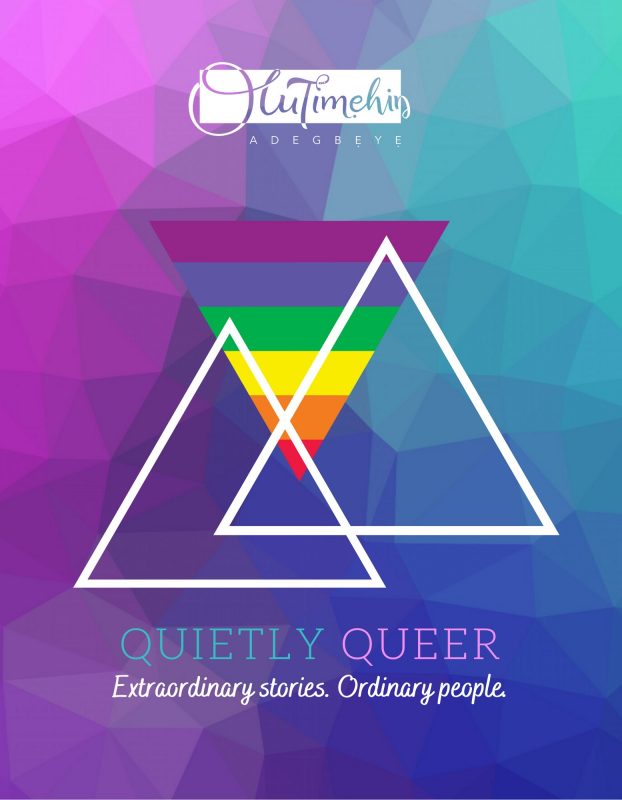I must admit that I was poised to relive trauma. Ruminating on unresolved pain has provided a safe haven from the emotional demands of healing. But this time in near-isolation has left me with nowhere to turn but inward. In fits and starts, I am beginning to ‘do the work’. I feel as though I am on the cusp of something new. Shifting the lens away from shame and trauma and towards self-validation and self-healing, I feel, is itself validating and healing.
In hindsight, I have always loved women. As a teenager, I was inexplicably drawn to them, and my vague longing was as visceral as it was bewildering. In my first year of high school, our class prefect asked me if I had asked anyone to be my ‘SF’. An SF, she explained, was a secret friend. Someone you wanted to be friends with, a fourth former maybe. Someone to look out for you. So I began to write hokey poems to the school captain, who read out the announcements every Wednesday at the school assembly, whose lilting voice spread a searing sensation inside my lower belly.
Though I intended these poems only as friendly overtures, I lost the nerve to send them and shared them with my friends instead. They indulged my obvious infatuation without judgment. Unbeknown to me, one friend, who went to church with the school captain, had smuggled one of my poems into Sunday mass and delivered it.
“Careful with those poems,” she had warned later, when had become estranged. “The captain is not a lele like you.”
In my first year of college, enamored once more with a lithe, umber-skinned classmate, I began to flirt with the idea that I might be bisexual. On a hot November afternoon, during lunch at the school cafeteria, I decided to share this with my best friend. We were sipping cold passion juice in long, plastic cups, our bags and phones sprawled on the linoleum table top. As I fiddled with my straw, the words tumbled out, and after a quiet pause, she shrugged and said, “as long as you don’t hit on me”.
I remember those words with incredulity, but on that hot November afternoon, I chided myself for broaching the subject and continued to sip my juice. Though I had known and loved queer people all my life, I didn’t want to be gay. Shame had left an indelible mark on my psyche. I didn’t want to have one more thing ‘wrong’ with me; bipolar and social anxiety were enough, I felt.
After graduation, with the benefit of time and distance, I revisited the question of sexuality. Had I been younger, less self-aware, the final realization that I was queer would have thrown me into yet another existential crisis. But today, the phrase “back when I used to fuck with men” makes me irrationally giddy.
While I feel little to no desire for romantic intimacy with men, I dream up elaborate futures with women I’ve only just met and fall headlong into thrill of new romance. Quietly, I have come into my sexuality. What is left to reckon with is my embattled womanhood.
Being fat and dark skinned with full, wide facial features, I have always existed outside ideals of cis-het womanhood. I have lost count of the number of times I have heard that I am “too dark”, “too fat”, “too intimidating”.
Much of my childhood and early adulthood was spent trying to outwit the twin logics of colourism and fatphobia. I noticed that adults were quick to warm up to my lighter-skinned younger sister, smile at her, and dote on her. Having learned early on that my worth was predicated on beauty or lack thereof, I would lose myself in elaborate reveries in which people would finally see that I was just as beautiful as my sister.
The realization that conventional beauty would forever remain out of grasp was agonizing. In my therapist’s office, I cried about the relentless trolling of dark skinned women, and she suggested, pointedly, that I get off Twitter. The ‘mainstreaming’ of feminist discourse online, fraught as it is, provided much needed respite from the more egregious forms of this violence.
In communion with queer black women, I have experienced healing and affirmation. Engaging with feminist and queer theory has helped me contextualize my experiences and chart a path toward self-definition. I am settling into that liminal space between masculinity and femininity. While I embrace ‘queer’ as affirming and all encompassing, I would describe myself more specifically as non-binary, homo-romantic and bisexual.
Queer, to me, is mutiny, revolt against the strictures of gender and sexuality. I am newly resentful of the assumption that I am cis or straight and less inclined to correct it. Though I understand that coming out serves different people in different ways, I am contemplating its usefulness in my own life. It is a life-long process, and I am weary of the risk and uncertainty involved.
Will people out me, shun me, attack me? When my rainbow-emblazoned hoodie is delivered at my address, who will be there to receive it? What will they say? I am afraid, I suppose, that my favourite cousin will stop speaking to me, keep her children away from me. Trust, safety, and love remain my primary concerns. For this reason, I know that I may never come out to my mother, and I have made my peace with that.
As I continue to resolve past trauma, I am learning to affirm my own feelings and experiences. I am not ashamed of being queer, not anymore. I am unlearning shame and claiming my queerness. The impulse to hide is growing weaker, and I am outgrowing the urge to self-negate. The ground beneath me is slippery, but I am finding my footing. I am building and rebuilding, however long it takes.
This piece is part of the Quietly Queer Collection. Share it with your circle or someone specific by clicking any of the social icons below (consider using the #QuietlyQueer hashtag on Twitter & Facebook).
Each author has the link to their publication, so feel free to leave a loving word for them in the comments.


This was so beautiful. Thank you